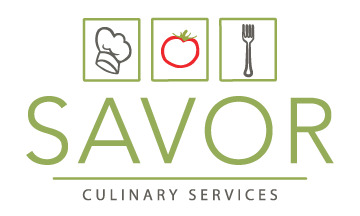Educating yourself about your dietary choices and how to eat right, can have a positive impact on your quality of life. A well-rounded and diverse diet is how your body will get the fiber, protein, vitamins, and minerals it needs. Outlined below are some facts you might not know about your health as it relates to eating right.
Marketing gimmicks
People have become more health conscious recently due to the explosion of diabetes, obesity, and heart disease. Companies have adopted some rather clever marketing techniques that allow them to sell to health-conscious consumers, without actually reevaluating their products.
Low-fat
This is probably one of the more pervasive marketing tactics companies use to reel in health-conscious consumers. In reality, the company has most likely replaced saturated fat content with hydrogenated fats, increasing the presence of trans-fats and their associated health risks.
Natural and whole-grain
Although the packaging may say it’s all-natural or whole-grain, this doesn’t mean the product is healthy. Snacks that often contain this ingredient also contain excessive amounts of other ingredients that can be unhealthy; such as sodium and sugar. Be sure to look at the ingredients list to make sure the product is indeed healthy.
Gluten-free and organic
For those of you with celiac disease or a gluten-intolerance, it can be tricky to navigate products that are both gluten-free and good for you. Products that contain the term gluten-free or organic can still be incredibly processed, much like regular foods and snacks.
Sugar and sodium
Refined sugar and sodium are in just about everything we eat, so it’s important to know the effects of consuming so much of them. Just one sugary soda or a glass of juice can put you right at the edge of your recommended daily intake, based on a 2000-calorie diet. Sodium, on the other hand, has the added health risks of high blood pressure, heart disease, and heart attacks. Both sugar and sodium intake should be closely monitored.
Eggs yolks are not bad
Anyone who has ever been to brunch or worked in the food industry has come across the term “egg-white only” at least once. There has been a shift away from egg yolks for fear of them being rich in cholesterol. Egg yolks actually contain good cholesterol, vitamin B, and sometimes omega-3 fatty acids. There is currently no science to support the myth that egg yolks are linked to cardio related illnesses.
Not eating enough fruits and vegetables
Fruits and vegetables are some of the most nutrient-rich foods you can eat; containing dietary fiber, vitamins, healthy fats, and minerals. Unless you are consuming vegetables with every meal, you are likely not getting enough nutrients to be as healthy as you should or can be.
Frozen vegetables are not bad
There’s no telling where the myth came from that frozen vegetables are less nutritious than fresh vegetables. Typically, fresh vegetables you buy from the produce section have been out of the ground longer, losing nutritional value for longer. Frozen vegetables tend to be harvested and then frozen rather quickly, locking in the nutrients.
Eating healthy reduces cravings
Heavily processed foods, containing high amounts of sugar and sodium, tend to digest rather quickly. Leaving you feeling hungry again shortly after eating. Eating foods full of fiber and omega-3 will take longer to digest, thus keeping you feeling full for longer.
Eating healthy is cost-effective
Processed foods are typically subsidized by the government and can be incredibly costly to your health. Those who eat only processed foods will tend to develop negative health effects as a result. Obesity, heart disease, diabetes, and lower quality of life are all heavily associated with eating processed foods.
Reverses illnesses
If you’re like most Americans, you’re likely to experience the consequences of unhealthy eating. Simple incorporation of a more robust and diverse dietary practice can help mitigate problems of obesity and high blood pressure. While eating healthy will not cure what ails you, it is a necessary step to living a happy, healthy life.
Grocery store access
Not everyone has the same access, as most Americans live a mile or more from their local supermarket. This access prevents people from having fresh, unprocessed ingredients more readily available. Luckily, there has been a boom in grocery delivery services, meal plan delivery, and remote nutritionist consulting.

